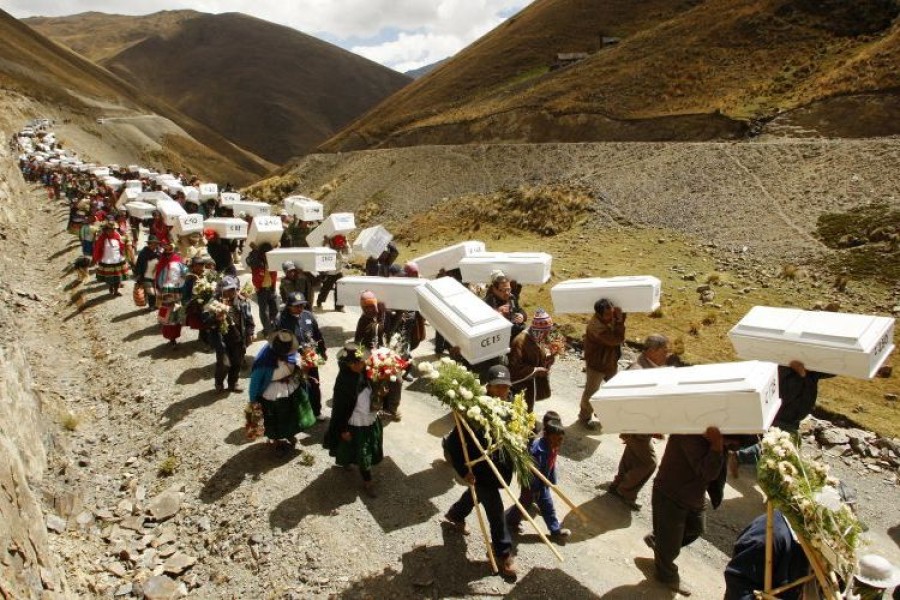Background: Human Rights Violations on All Sides
From 1980 to 2000, violent internal conflict wracked Peru, leaving behind an estimated 69,280 dead or disappeared.
The violent insurgencies of the Shining Path (Sendero Luminoso) affected vast tracts of the Peruvian countryside.
In 1984, the Revolutionary Movement Tupac Amaru (Movimiento Revolucionario Túpac Amaru, or MRTA) initiated its own armed struggle against the government. Both groups committed abuses against civilians.
The Peruvian state also unleashed systematic abuses, acting under a 1981 Emergency Law. Small, rural communities and native peoples of the Andes and Amazon bore the brunt of the violence and lived under a reign of terror and torture.
In the next decade, President Alberto Fujimori’s repressive rule further eroded the rule of law and gave rise to amnesty laws and impunity for government death squads.
In 2000, he fled the country and a transitional government opened the door to truth and justice for two decades of mass human rights violations.
Three years later, Peru’s Truth and Reconciliation Commission delivered its final report and recommended a number of cases for prosecution. Since 2003, trials have been held for death squad members, police and military involved in crimes of torture, murder, and disappearance.
Fujimori was charged with corruption and human rights violations and subsequently arrested in Chile. Following his extradition to Peru, in 2009 he was sentenced to 25 years’ imprisonment.
The TRC also recommended a Comprehensive Reparations Plan (Plan Integral de Reparaciones, or PIR), which was largely approved by a 2005 law and since then has slowly begun to be implemented.
ICTJ's Role
ICTJ has been engaged in Peru on specific topics since 2001, working with civil society, the truth commission, local communities and the government on a number of justice issues. Most recently,
- During the Fujimori trial, ICTJ monitored the proceedings, and provided technical assistance to the victims’ advocates. We also provided relevant jurisprudence to the court.
- From 2009 to 2011, in partnership with five local NGOs, ICTJ worked directly with victims’ organizations in over 50 rural communities to: build their advocacy capacity in connection with reparations policy; establish local and regional networks to strengthen their reach; help recover and document their memories of the conflict.
- From 2008 to 2011 we worked with the Association for Human Rights (APRODEH) to monitor implementation of collective reparations.
- We are still engaged providing technical advice on developing reparations policy to government implementing agencies, independent State institutions, human rights groups and others.
